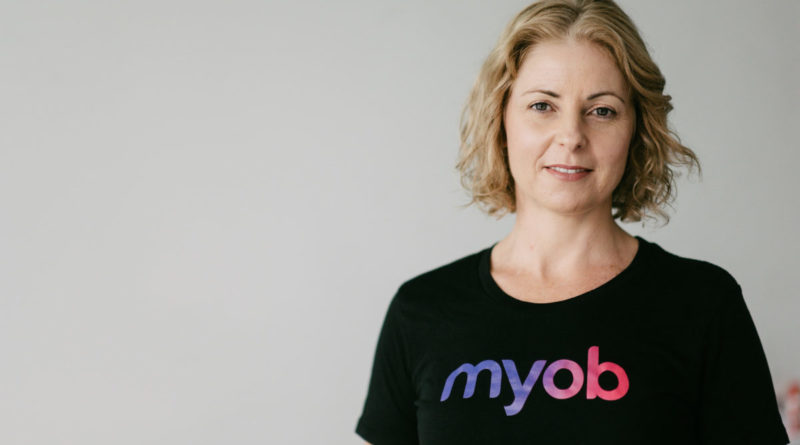New data shows increase in SMEs experiencing stress and anxiety
With around 70,000 business or service entities in the construction industry in New Zealand, the lingering impacts of the COVID-19 pandemic have led to a surge in the number of local SME owners and operators experiencing stress and anxiety, according to new research from business management platform, MYOB.
New insights from the MYOB 2022 Business Monitor – a survey of more than 1,000 local SMEs – has revealed around a third (32%) of SME owners and operators have experienced a mental health condition since starting or taking over their business.
Of those who have experienced a mental health condition, 85% reported being affected by stress, while 71% said they have experienced anxiety and 39% have experienced depression.
In contrast to last year, the latest figures show a significant increase in the proportion of SMEs experiencing stress – up nine percentage points (76% in 2021), while the number of SMEs affected by anxiety rose seven percentage points (64% in 2021), on last year.
Visit Mates In Construction or Depression.Org for additional support.
COVID-19 repercussions remain top factor negatively impacting wellbeing
In terms of what’s having the most negative impact on wellbeing, most SMEs (59%) surveyed said that ‘COVID-19 repercussions’ were the top factor negatively impacting their wellbeing – holding onto the top spot from 2021. This was followed by a lack of sleep (35%) and workload (29%).
MYOB’s Head of Employee Services, Felicity Brown, explains that while running a business can be incredibly rewarding, growing pressures can have a significant effect on wellbeing.
“The Kiwi business owners behind the more than 530,000 SMEs we have here in Aotearoa, are typically known for their passion and resilience, however, over the past couple of years they’ve had to overcome numerous challenges as they run their business and it’s clear this is having direct impact on their mental health and wellbeing,” says Felicity.
“Given the current economic environment, with the cost of living and inflation rising – coupled with growing workloads – it’s understandable SMEs will be feeling overwhelmed, which is leading to increases in stress and anxiety, but it’s important for business owners and leaders to remember they’re not alone and support is available.”
Talking about mental health in the workplace
Despite a significant proportion of SME owners or leaders experiencing mental health struggles, the research found that a majority of SMEs aren’t actively discussing mental health and wellbeing in the workplace. Three quarters (75%) of those polled said they have not discussed mental wellbeing and support with their employees over the past 12 months, while just a quarter (25%) said they have.
MYOB’s data also revealed younger generations of business owners seem to be more comfortable talking about mental health, than their older counterparts. Nearly two fifths (38%) of Gen Y and Gen Z SME owners have discussed mental wellbeing and support with their employees over the past 12 months, compared to 29% of Gen X SMEs and just 20% of Baby Boomers.
Mental Health Foundation’s Chief Executive, Shaun Robinson says, “A healthy and thriving business requires mental wellbeing policies to be made a priority. Good mental health leads to better engagement, reduced absenteeism and higher productivity, while improving people’s wellbeing, morale and job satisfaction.
“During these challenging times we encourage all SMEs to create a workplace where mental wellbeing takes centre stage. It may feel daunting initially as you juggle the challenges of running a business. You’ll need to communicate and engage with your staff so together you can begin to make change. To help support your conversations check out the free resources for workplaces that sit on our website.”
Workplace wellbeing initiatives still low
Reflective of last year’s findings, the 2022 MYOB Business Monitor found that only a handful of SMEs have implemented new mental wellbeing support for their team members over the past year.
Just 10% of SMEs have put in place new mental wellbeing initiatives or support for employees over the 12 months prior to the survey, whereas 84% of SMEs have not, according to the latest insights.
When those SMEs who haven’t implemented anything new around mental wellbeing were asked why, the most common responses showed:
- 15% believe their employees don’t need any mental wellbeing practices or support
- 14% have already put some of these practices in place
- 13% have never thought about implementing wellbeing practices or support for their employees.
Amongst the businesses which had implemented new wellbeing initiatives in their workplaces, these practices included regular check-ins to manage workload (40%), introducing flexible hours to improve work/life balance (38%) and providing team members with a mental health day or days (32%).
“Being mindful of employees’ wellbeing and offering support around this is incredibly important to both workplace culture and performance. But putting in place measures to help empower conversations around wellbeing or improve workplace practices and support for employees, doesn’t need to cost the earth,” says MYOB’s Felicity Brown.
“From growing their knowledge and inspiration around wellbeing at work using free resources available from MBIE, the Mental Health Foundation of New Zealand and Wellplace, to sharing free digital solutions created specifically for those in small business, like Smiling Mind, or establishing mental health ‘first aiders’ in the workplace – there are a range of tools available to help small business owners and their teams.”
With mental wellness playing a critically important role in the success of SMEs, MYOB partnered with mindfulness app – Smiling Mind – in 2020, to create the ‘Small Business Program’ – a psychologist-designed program created to help small business owners proactively manage the unique stressors and challenges they face.
Free to access for SMEs in New Zealand and Australia (via the App Store or Google Play), the Small Business Program comprises four models: stress management, managing work/life balance, managing isolation, supporting growth and building resilience.
For more information on SMEs’ mental health and wellbeing, click here to read the MYOB 2022 Mental Health Report.




